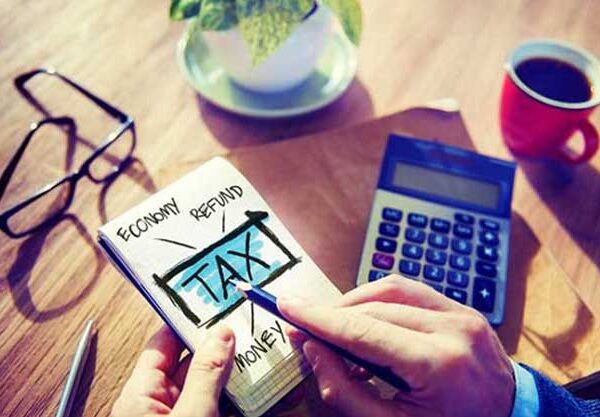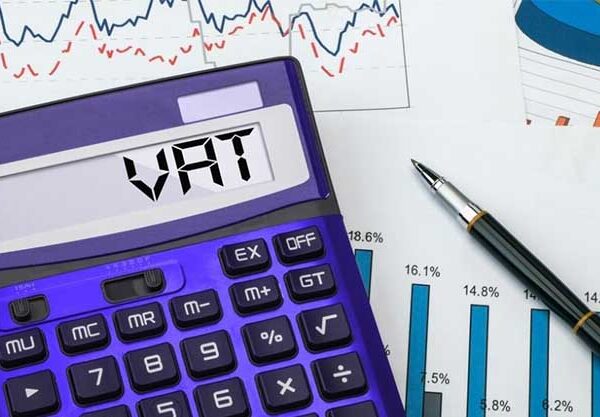VAT stands for Value Added Tax, which is a tax on the consumption or use of goods and services. A VAT of 5% is charged at the point of sale. Taxes are collected and accounted for by businesses on behalf of the government. Register for VAT (value-added tax) and submit VAT returns in the UAE.
The taxable supplies and imports of a business must exceed AED 375,000 per annum in order to be registered for VAT. The tax is optional for businesses whose supplies and imports exceed AED 187,500 per year. A business house pays the government the tax it collects from its customers. Moreover, it receives a government refund on taxes that it paid to its suppliers. Additionally, foreign businesses may recover the VAT they incur while in the UAE.
Is VAT Applicable on Services in UAE?
2016 marked the establishment of the Federal Tax Authority (FTA) through Federal Law by Federal Decree No. 13. Among its responsibilities, the authority manages and collects taxes, as well as distributes tax revenues, and implements tax-related procedures.
His Highness Sheikh Hamdan bin Rashid Al Maktoum, Deputy Ruler of Dubai and UAE Minister of Finance, is the authority’s Chairman, while His Excellency Khalid Al Bustani takes over as Director-General from his position as Assistant Undersecretary of International Financial Affairs at the Ministry of Finance, which he held for more than 37 years.
Hospitals, roads, public schools, parks, garbage management, and police protection are among the services provided by the UAE Federal and Emirate governments to citizens and residents. Government budgets are used to pay for these services. Taxes provide our country with a new source of income, contributing to the provision of high-quality public services in the future. By doing so, the government can also move towards its vision of reducing its dependence on oil and other hydrocarbon income. On 1st January 2018, vat registration services in Dubai were introduced across the UAE at a standard rate of 5%.
What is Taxable Supply?
GST is levied on the supply of goods and services. A number of taxable events, including manufacture, sale, rendering of service, purchase, entry into a state’s territory, etc. have been replaced with just one, namely, supply. The constitution defines a “Commodities and Services Tax” as any tax imposed on the provision of goods, services, or both, with the exception of taxes imposed on the supply of alcoholic beverages for human consumption. Both the Central and State governments will have the power to levy the GST on intrastate supplies. However, the Parliament alone shall have exclusive power to make laws with respect to levy of Goods and Services Tax on Inter-State Supply. A supply of goods or services or both is considered to have a transaction value, which is the price paid or payable for the said supply of goods or services or both where the supplier and the recipient are not related and the price is the only consideration.
The value of supply shall include:
- Taxes, duties, ceases, fees, and charges imposed by any law for the time being in force other than this Act, the State Goods and Services Tax Act, the Union Territory Goods and Services Tax Act, or the Goods and Services Tax (Compensation to States) Act, if charged separately by the supplier;
- Amounts the supplier is liable to pay in connection with such supply, but which have been incurred by the recipient of the supply and are not included in the price actually paid or payable for the goods or services;
- Incidental expenses, including commission and packing, incurred by the supplier in connection with the supply of goods or services or both, at or before delivery of goods or services;
- Payment of any consideration after the due date may result in interest or late fees or penalties; and
- Direct subsidies linked to the price, excluding central government and state government subsidies.
What is Supply of Services?
In the context of GST, any form of supply of goods or services qualifies as a place of supply. Sale, transfer, barter, exchange, and license are some of the categories. Further, a person can be permitted to rent, lease or dispose of the property in the course or advancement of their business. State and/or federal governments are responsible for charging the GST when a service is supplied. According to the GST regulations, the time of supply of services is:
- If the invoice is issued within the prescribed period, the date of issue or date of payment, whichever is earlier;
- The date on which payment has been received or the date on which services have been completed. If the supplier still has not received the invoice by the prescribed period, the date shall be based on the earlier processed date.
- If clauses (a) or (b) do not apply, the date when the recipient records the receipt of services in his books of account.
Under GST, the invoice or payment covers the payment for the supply of goods. In addition, the date of receipt of payment shall be related to the date. It is determined by the date that the payment is entered by the supplier into his books of account. Likewise, the payment can be credited to a bank account on the date the payment is received.
At, as a general consumption tax, will apply to the majority of transactions in goods and services. Exceptions to the rule may be granted in limited numbers. Therefore, the cost of living is likely to increase slightly, but this will depend on an individual’s lifestyle and spending habits. In most cases, spending mostly on things that are exempt from VAT will not result in an increase in cost for an individual.
The government will include rules requiring businesses to specify how much VAT an individual must pay for each transaction. An individual may decide whether to buy something based on this information. Businesses will be responsible for carefully documenting their business income, costs, and associated VAT charges.
The VAT rate is the same for all customers and businesses registered with the RCS. VAT is also charged on goods and services purchased from suppliers. Differences between these sums are reclaimed or paid to the government.



